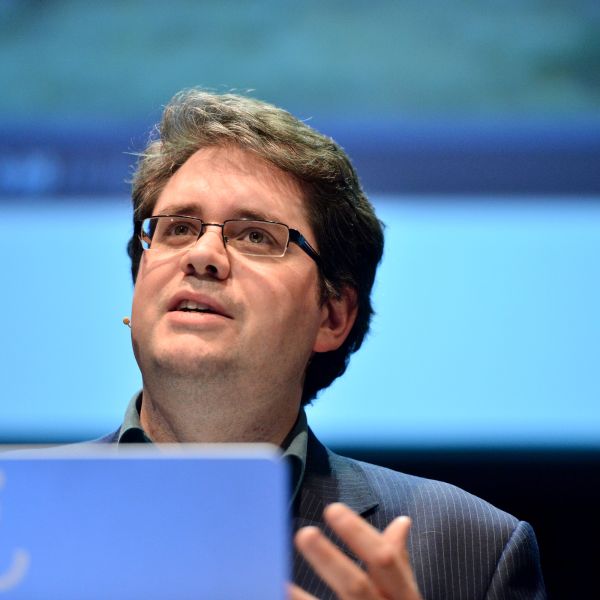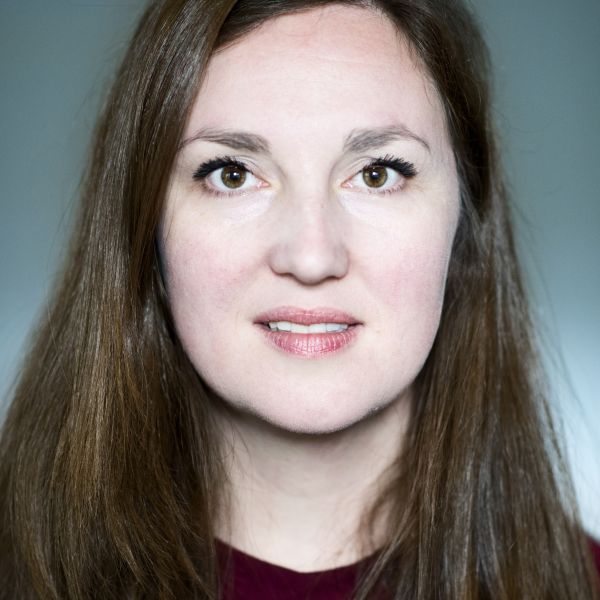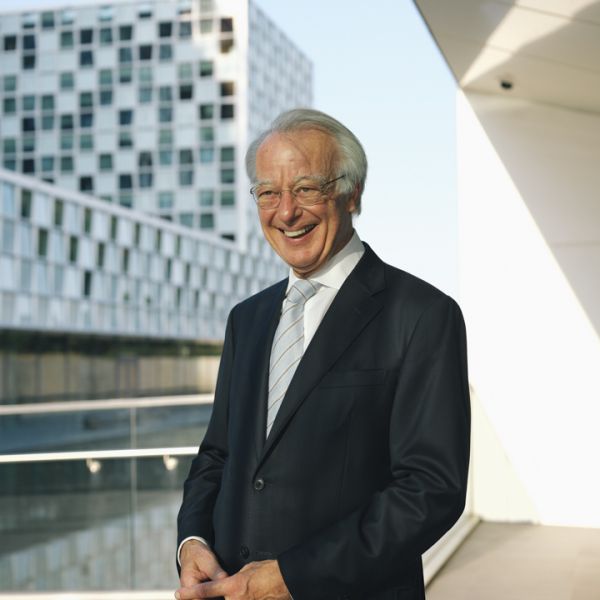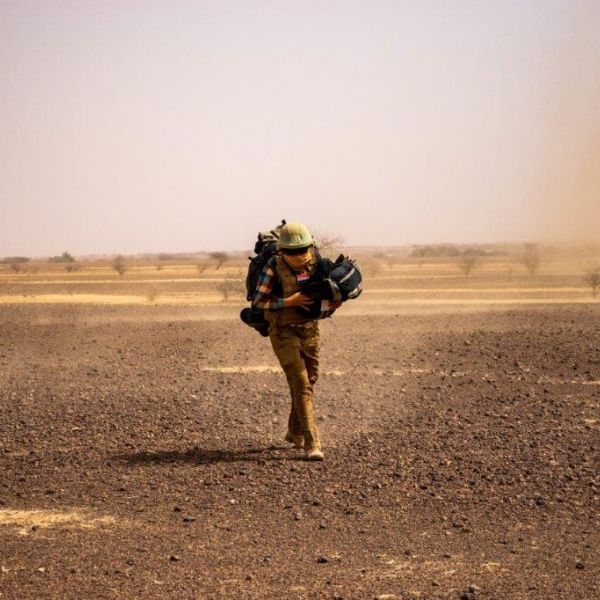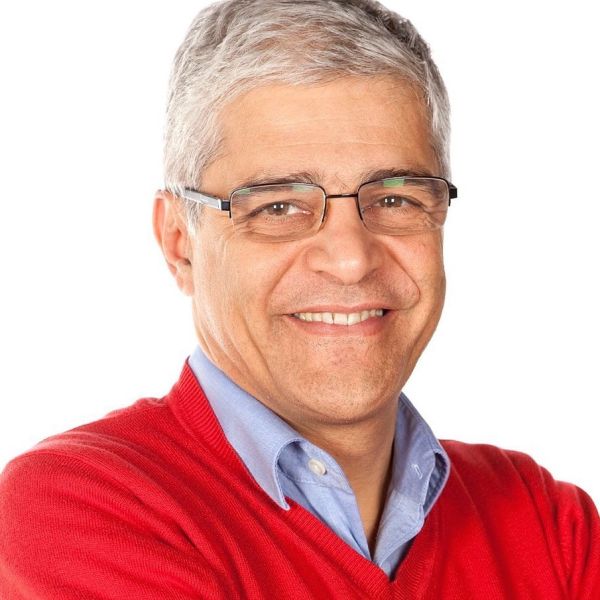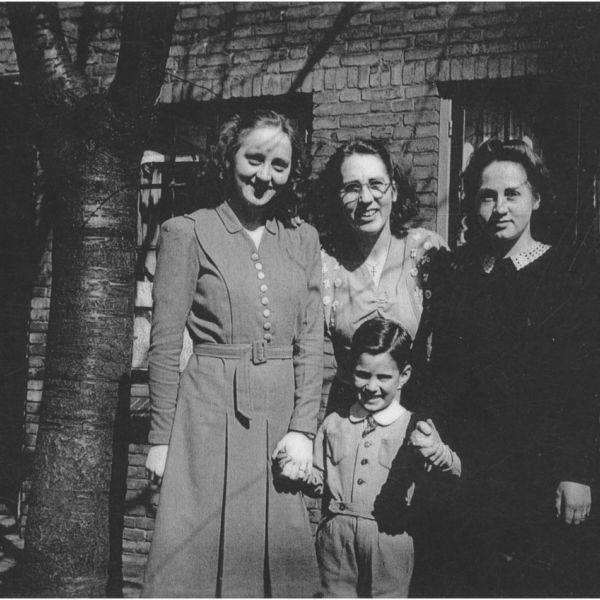75 years of UN in 75 stories: Ahmed Saleh
Ahmad Saleh (1991) from Damascus, Syria fled the country in 2014, making the dangerous boat crossing to Italy. It was on that boat that he met Yousif Fasher, from Darfur. A few years later, their paths crossed again at an event in The Hague.
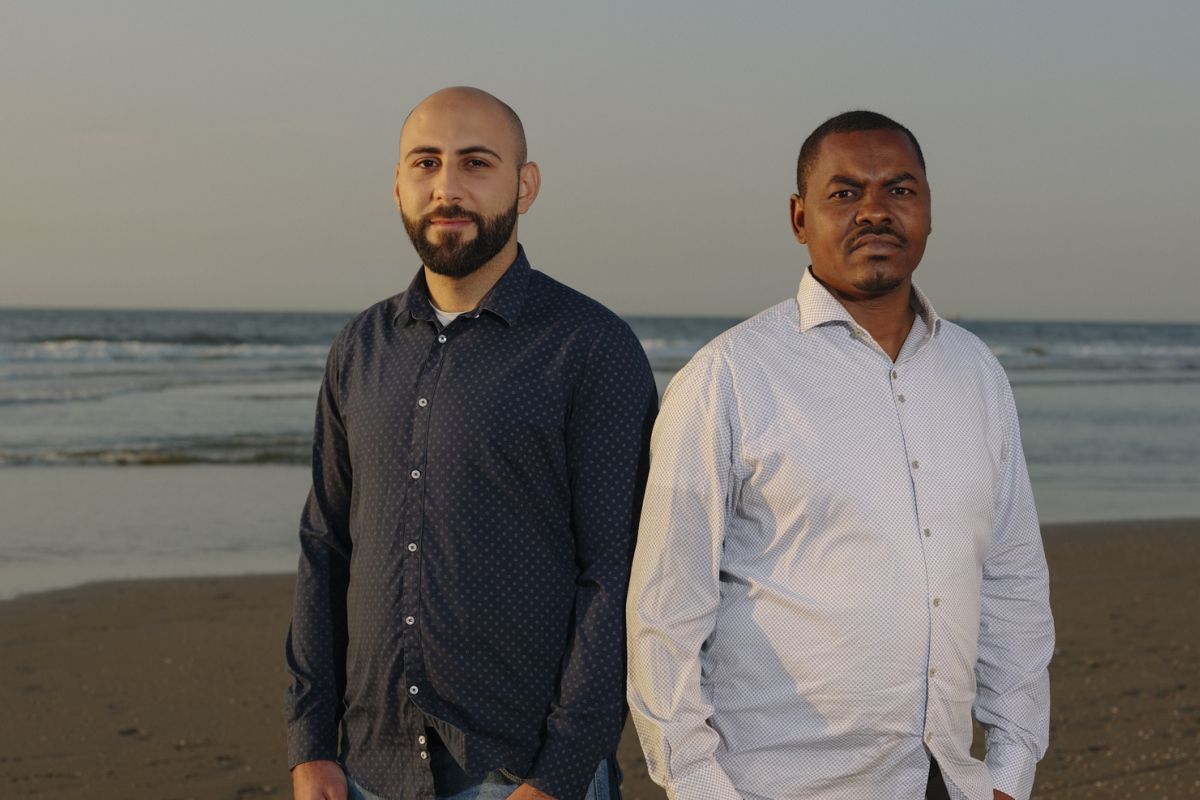
After the Arab Spring of 2011, as unrest spread across many countries in the Middle East, large groups of refugees fled, attempting to find freedom and safety in Europe. Images of throngs of desperate people, often crowded into rickety boats completely unsuited for the crossing to Europe, quickly travelled around the world. The dangerous journey often ends in death. Reception centres for the refugees (many of them Syrian) were quickly strained to the breaking point, unable to cope with the incoming tide. In many countries, the refugee situation became a cause of discontent and unrest.
UNHCR, the UN Refugee Agency, was active in Syria, aiding those fleeing the violence. UNHCR also set up aid facilities on the Greek islands, where many of the refugees who had fled via Turkey were washing up on the beaches in their tiny boats, but quickly warned that the numbers were more than UNHCR could handle.
According to figures published by UNHCR, in 2019 there were nearly 80 million people worldwide displaced by war and violence. This is the largest number of displaced people in the world since the Second World War. On 19 September 2016, the 193 members of the United Nations signed the New York Declaration for Refugees and Migrants. This declaration gives UNHCR the mandate to use its years of experience to draft a pact that takes a global approach to alleviating the worldwide refugee situation.
“There was more than one moment when I thought that we weren’t going to make it.”
The boat was far too small for the 700 people on board, and there was only one toilet. Ahmad took great care to ensure that he got the minimum food and drink he needed to survive but not more, so he wouldn’t have to go to that toilet. He joined up with Yousif, who had set up a system to fairly distribute the limited supply of drinking water and food that they had, ensuring that the children and the sick would get their fair share. “If people started fighting over food, the whole boat could have flipped over. There was more than one moment when I thought that we weren’t going to make it. There have been two times in my life when I’ve been afraid that I was about to die. The first time was when I ended up in prison in Syria, where I had been sent for protesting against the Assad regime. The other was on that boat. I was afraid that we wouldn’t make it, and I thought about my family I had left behind. When I saw the fear in people’s eyes, I felt responsible. Someone had to do something; anything would have been better than just watching.”
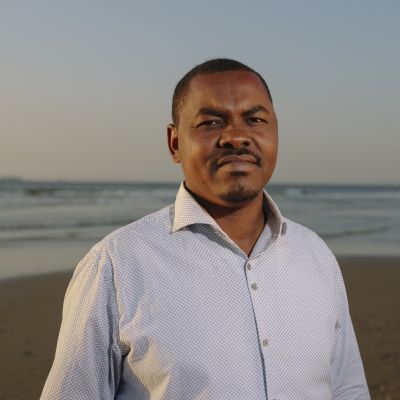
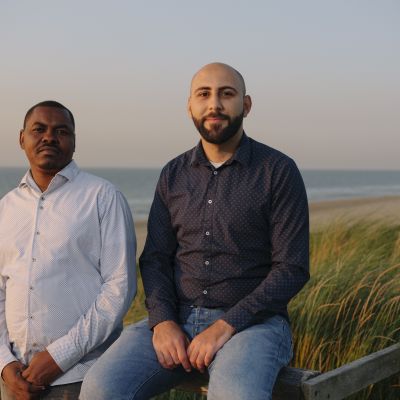
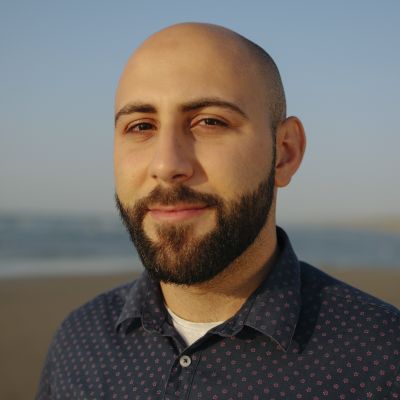
“Someone had to do something; anything would have been better than just watching.”
Ahmad recalls the Syrian girl who wanted to give her water ration to her sick father. Because the smugglers had said that the crossing would only take two days, he hadn’t brought along enough medicine to treat his diabetes. The man died shortly before they were finally rescued by a passing oil tanker; they had been at sea for eleven days.
During the journey, Ahmad and Yousif developed a bond. But once they reached land, they went their separate ways. Three years later, in 2017, they both attended a human rights advocacy event in The Hague. Yousif was a speaker, telling his story of the genocide in Sudan; Ahmad was a volunteer at the event. At first they could hardly believe it, but their surprise rapidly gave way to joy at seeing each other again.
There is only one place on earth where nearly all the nations of the world sit around the table: the United Nations. The UN focuses on issues that transcend the borders of countries or even affect the entire world, such as peace and security, climate change, education, health, cultural heritage, economic development, and more. To many, the work of the UN seems very abstract, but by engaging with rescue workers, peacekeepers, aid workers, diplomats, eyewitnesses, soldiers, and others involved with the UN, it becomes clear how important the work of this organization is. This is exactly what Humanity House has done. Unfortunately, this organization had to close its doors, but Just Peace and Museon-Omniversum have teamed up to preserve their stories. You can now find these stories on Just Peace's website, and some of them are also included in an exhibition about the UN at Museon-Omniversum.
The 75 Years of UN Stories were collected and curated by Frederiek Biemans for Humanity House.
